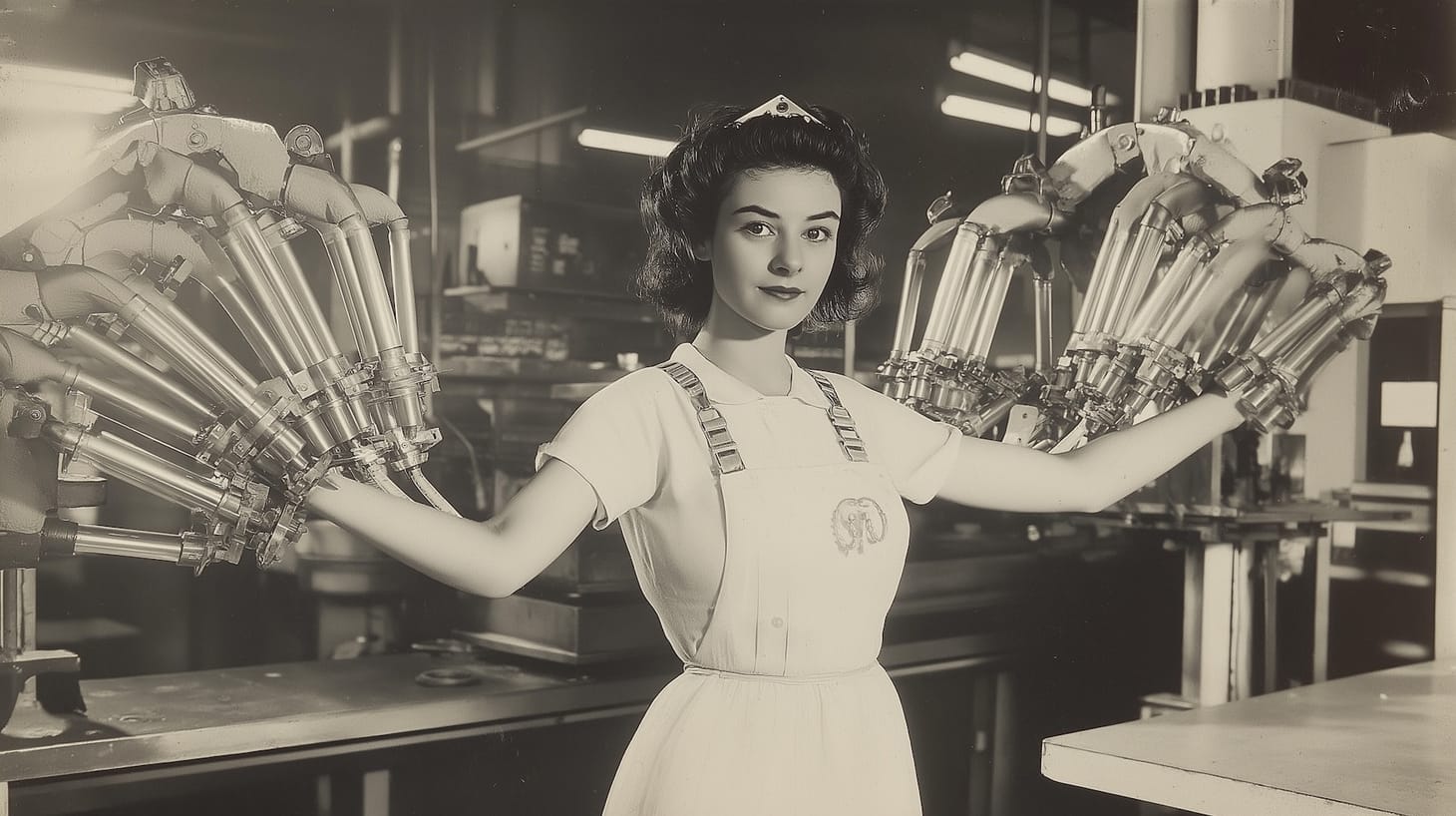It's Time to Rethink Inequality
Our battle against inequality is failing because we're fighting the wrong war. We're trying to hold onto the 20th Century instead of embracing the abundance offered by the 21st. Here's what we should do instead.

Our views about inequality are stuck in the previous century. In the 20th Century, income distribution was a function of productivity. And since individual productivity was constrained, so was inequality.
At a factory, one employee could be 20% more productive than their peer, perhaps even 2X as productive. But no one was 1000X more productive because it is not physically possible to do the same jobs a thousand times faster. During most of the 20th Century, the same was true for most office jobs: Some people could type, make calls, or file documents faster, but they couldn't do it that much faster.
Even back then, people were not the same. There was a variance in people's performance. But the distribution of productivity tended to be normal — with most people somewhere around the middle and a relatively short distance between the bottom and the top. Broadly speaking, the income distribution reflected the productivity distribution.
Today, the relationship between inputs and outputs is no longer linear. Most people don't work in factories. And even at the office, most people no longer perform identical, repetitive tasks. Most of our production is focused on intangible assets such as code and content. Even in companies that produce or manage physical goods like automobiles, fruit juices, or hotels, the assets that matter are intangible.
In our world, the distribution of productivity is no longer normal. Someone can come up with a billion-dollar idea in five minutes, while a team can spend a whole year coding a project that ends up completely worthless. Even worse, the prevalence of network effects means that two people can produce exactly the same thing, but one will become a huge success while the other will remain obscure. Across more professions and industries, the distribution of productivity is becoming increasingly skewed, with a few individuals or teams producing outsized results while the majority contribute more modestly.
Does this mean we should accept extreme inequality?
No. However, we need to start thinking about inequality in a new way. Currently, too many of our efforts are still focused on pushing everyone back to the 20th Century and making everyone equally productive. This means holding on to structures and processes that no longer make sense. It means paying for things to be done in ways that already have simpler and cheaper alternatives. It means propping up industries and ideas that have outlived their purpose.
Instead of focusing on the inequality of production, we need to focus on the inequality of consumption. We can't make everyone equally productive, but we can ensure everyone has access to good housing, education, healthcare, entertainment, and opportunities for self-fulfillment.
Ironically, improving equality of consumption depends on deteriorating inequality of production: the more we enable and incentivize individual people to become more productive than ever, the more resources we will have to spread around for everyone else. Of course, our taxation and services should also be updated to embrace these assumptions. We should encourage and celebrate success rather than vilify and suspect it. And we should also tax such success hard and put more money aside for investment in public goods. Meanwhile, we should embrace and scale up innovation in all the fields that affect everyone's quality and cost of living: housing, energy, education, and healthcare.
But there's another matter to consider: The matter of power. If we allow some people to become more productive than ever, they might translate their economic power into political power and undermine the whole system. Some examples of this dynamic are already very visible in American politics. To counter and mitigate it, we should do — at least — two things: (1) Limit the government's ability to exercise arbitrary power, and (2) funnel a big share of tax revenues to a public-benefit entity that invests it for the long-term and is not subject to short-term political considerations. That last idea is akin to how countries like Norway treat their oil and gas revenue — taxing them heavily but reinvesting most of the tax through an independent public entity.
Note that the goals here are not necessarily to make the government smaller or reduce public spending. The first goal is to ensure that powerful individuals have a limited ability (and a limited incentive) to influence government decisions since such decisions will apply equally in all cases and leave little room for arbitrary decisions. The second goal is to ensure that the influx of new taxes does not make government services less efficient and sclerotic — as is already the case in innovation-rich states like California and in the United States at large.
The path forward requires a delicate balance: embracing the new reality of highly skewed productivity while ensuring it serves the greater good. This means building robust institutions that can capture and redistribute the fruits of exceptional productivity while maintaining democratic safeguards against the concentration of political power. The sooner we adapt our economic and political systems to this new paradigm, the better equipped we'll be to create a society that combines unprecedented innovation with broad-based prosperity.
These ideas are meant to spark a broader conversation about how we might reimagine our approach to inequality in an age of nonlinear productivity. The challenges ahead are complex and will require diverse perspectives and creative solutions. What other approaches should we be considering?
Best,

🎤 Are you looking for a keynote speaker for your next event, corporate offsite, or investor meeting? Every year, I inform and inspire thousands of executives across the world. Visit my speaker profile to learn more and get in touch with my agent.
Old/New by Dror Poleg Newsletter
Join the newsletter to receive the latest updates in your inbox.

